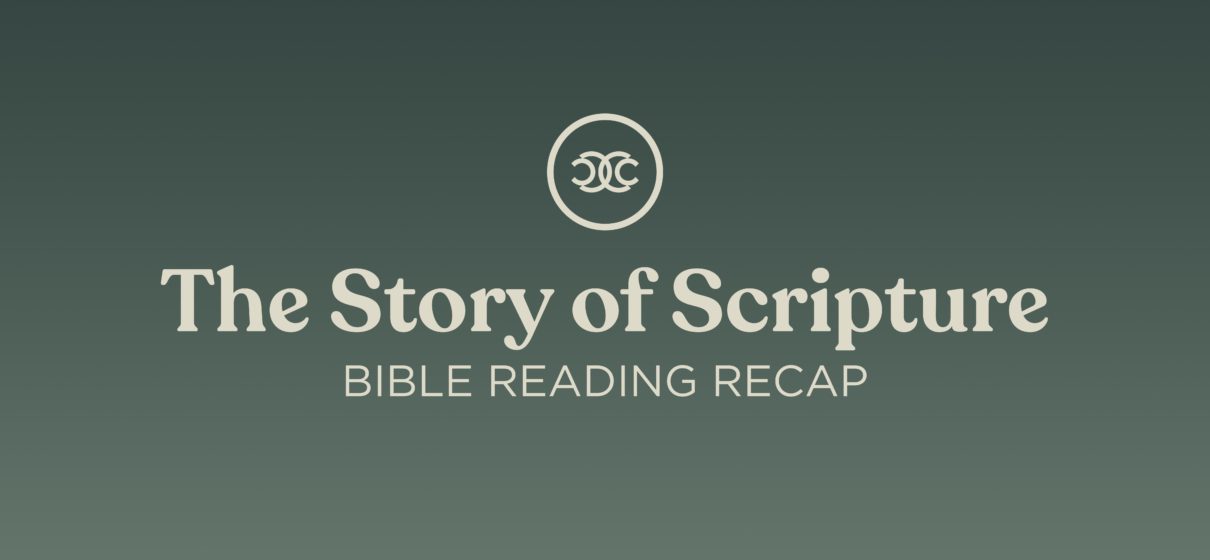The beginning of a new year and a new Bible reading plan can bring much excitement and hope as Christians gear up to read through the Bible. The first couple of months, the reader gets to take in some interesting stories through the books of Genesis and into Exodus—famous stories that even those unfamiliar with the Bible would know. It’s captivating reading (outside of a few genealogies). Then comes some ancient laws in the middle of Exodus when the people of Israel reach Mount Sinai. The reader thinks, “Okay, I can get through this.” But out of nowhere, the reader’s hit with Exodus chapter 25. Of the next sixteen chapters, thirteen contain blueprint designs for a tent along with uniform clothing patterns. Not exactly text that the typical reader will find intriguing.
As a summary, chapters 25-31 of Exodus contain the plans to build the Tabernacle as well as the design of the uniform for the priest. Chapters 35-40 repeat the blueprint plans as the Israelites follow through with building the tent. Even though the tent itself is highly important to the people of Israel as this is where God would dwell in their midst, it seems kind of redundant (and boring) to go into that much detail. So, what’s the point of having thirteen chapters of plans dedicated to this tent structure?
It is helpful to go back to the beginning. Genesis starts with a seven-day creation story and narrows down to the land of Eden. There are some details in these two chapters to take note of:
- God dwells with Humanity in Eden
- Trees are prominent in the garden
- Fruit is in the garden
- There is a three-tiered element to the garden land (the land, region of Eden, garden in Eden)
- Adam and Eve will work the garden1
- Rivers flow out of the garden
- Beautiful stones are found in the garden
- After Adam and Eve disobey, they are exiled to the east2
- Cherubim with a flaming sword protect the entrance to the garden
With these details in mind, elements of Exodus 25-31 may start to stand out. It is as if God is having them build a little replica of Eden in the middle of his people. The tabernacle is also a three-tiered space, guarded by a flaming altar with cherubim on the doors of the holy space, facing east.3 Within that space are items made from precious stones and wood.4 Depictions of trees and fruit are hung on the walls and made into ceremonial elements, with a basin of water, too. Add to that a seven-day ceremony that was held to dedicate the tabernacle and priest.5
God did not give Moses random blueprints to build the tabernacle. He was modeling the Garden of Eden where God and humanity dwelt together in a full and complete relationship. The relationship Adam and Eve had with God in the garden before Genesis chapter 3 was an experience God wanted to provide to his people once again through this tent. Of course, there were some stringent regulations about how that played out, but God was committed to bringing his space and humanity’s space back together in totality. The tabernacle was a constant reminder of God’s presence among the Israelites and his covenant with them.
The tabernacle was the portable version of the temple King Solomon would later build in Jerusalem. If you read the description of the temple blueprints in 1 Kings 6, many of the same garden imagery is used once again. It is another depiction of God’s commitment to restoring his creation as it was in the garden.
The role of the priest of the tabernacle was also significant. Israel was called to be a nation of priests to all the word.6The priest worked in the tabernacle and, later, temple as a mediator between God and humanity. Israel was called to do the same to the world around them. Unfortunately, Israel continually rejected God’s covenant, so the temple itself did not serve its ultimate purpose, nor did the priest or the nation of Israel.
When John starts his Gospel, there is an instructive verse in chapter 1: “And the Word became flesh and dwelt among us.”7 The “Word” is a reference to Jesus, and the word “dwelt” is the Greek word for “tabernacled.” From the very start of his narrative, John claimed Jesus was the space where God and humanity are in full relationship, just as they were in the garden and as the tabernacle/temple represented. A few chapters later while Jesus taught at the Jerusalem temple, he pronounced he would destroy the temple and in three days raise it up. His audience was very confused. The narrator then jumps in and tells the reader Jesus was talking about himself.8 Jesus saw himself as both the temple and priest—the place God dwelt and the mediating priest between God and humans.9
When Jesus ascended into the heavens, he told his followers to wait for the Holy Spirit so that God’s presence would fill a new kind of temple, Jesus’ followers, both corporately and as individuals.10 This has major implications. Now instead of one tent or one temple or even one Jesus on the earth, God’s dwelling presence is now within followers of Christ—followers collectively known as the body of Christ that will spread out and proclaim the good news of Jesus all over the world. Christians, with the same vocation as the priest mediating in the tabernacle, are to be walking around as little Eden spaces in the world.11
Exodus chapters 18-25 may seem redundant, overly detailed, and boring, but they point both backward and forward to God’s redeeming of creation and humanity through Jesus. And it is Jesus who empowers his “body” to be the images of God though his indwelling Spirit, proclaiming, modeling, and calling all creation into a new Eden.
Footnotes
- Genesis 2:15 and Numbers 3:7-8 use the same Hebrew word for the priest’s work
- Genesis 3:24
- Outer court, Holy Place, Holy of Holies
- The Hebrew word ‘ʿēṣ’ is used for trees and wood
- Leviticus 8:33
- Exodus 19:6
- John 1:14
- John 2:21-22
- Hebrews 4:14
- Luke 24:49, Acts 1:8
- 1 Peter 2:5


